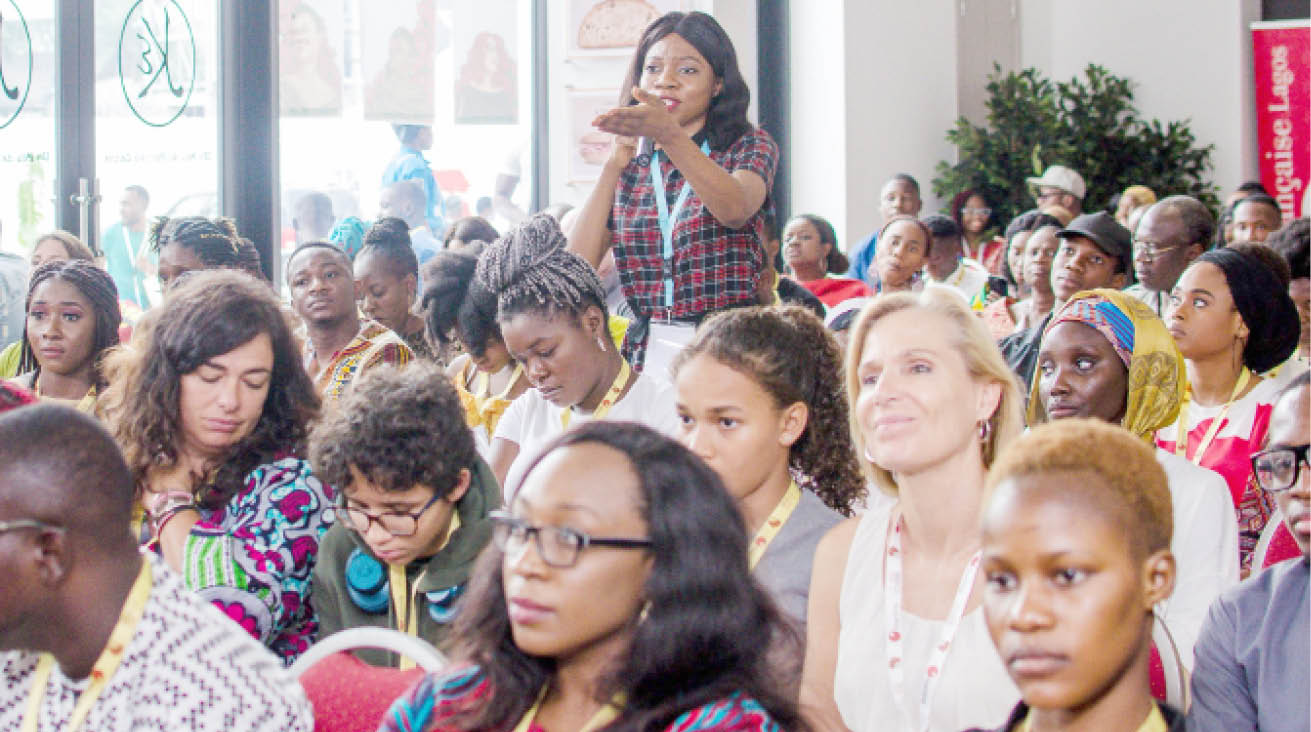Column No. 6: As literary festivals continue to grow in Nigeria
Last year, during the global lockdown triggered by the coronavirus pandemic, the 23rd of March to be precise, Kenya-based South African writer Zukiswa Wanner and some friends ignited a literary festival called Afrolit Sans Frontières, a play on Médecins Sans Frontières (Doctors Without Borders). The online festival caught on, and like wildfire hosted thinkers and […]

As literary festivals continue to grow in Nigeria
Last year, during the global lockdown triggered by the coronavirus pandemic, the 23rd of March to be precise, Kenya-based South African writer Zukiswa Wanner and some friends ignited a literary festival called Afrolit Sans Frontières, a play on Médecins Sans Frontières (Doctors Without Borders). The online festival caught on, and like wildfire hosted thinkers and discussions from around the world, all from the comfort of one’s home. Stories and coverage followed, even on the New York Times, as well as well-respected literary portal BrittlePaper.com. By the time the show – done in ‘seasons’ – was finished, it was clear that all had a rollicking great time, and a lot of good was achieved. Sadly, this year there hasn’t been another edition of that literary treat.
In 2019, ‘litfest season’ was kicked off with the Kaduna Book & Art Festival, which celebrated northern Nigerian artists and writers alongside global stars. Covid-19 meant 2020 was skipped, and same went for this year’s. The Lola Shoneyin-directed event might return next year, given the somewhat safe levels of safety around the world. So this year, after the Quramo Book Festival’s 3 days celebrating books and writers, as well as giving out the Quramo Prize for Literature which targets first-time authors, Nigeria’s yearly ‘litfest season’ had begun in earnest. Soon after that, came along the Abuja Literary Festival, nicknamed AlitFest (in turn re-nicknamed ‘A Late Fest’ by me after a funny tardiness-related issue at an edition where I was a guest). I didn’t get to attend, but I had impeccable info that the excellent gathering of artists, writers and readers provided what has always been an oasis in the literary desert that is Abuja.
- North Central can produce president, APC national chair – Al-Makura
- THE BEARING: Should a woman propose to a man?
This year also saw the debut of the Hausa International Book & Art Festival, October 20 to 23, in Kaduna. Launched by the writer Sada Malumfashi, The first edition went with the theme ‘Spaces’, and sought to “explore the origins of Hausa literary spaces, converse and discuss notions of gender, identity, culture, and politics.” And from what I heard it was a great success, even if the Abuja-Kaduna train attack saw a number of marquee guests unable to attend. The festival enjoyed the support of ‘cousin’ festivals, researchers, academics and cultural institutions from the UK and Germany. A day after the HIBAF in Kaduna, and while all that all that literary goodness was transpiring, the Lagos International Poetry Festival began its 2021 run, from October 21, to 24. They hosted a wide and diverse range of poets drawn from across generations.
Currently unfolding, and billed to wrap-up today, October 30, is the Aké Arts and Book Festival, that four-day Lagos-based lit fest that is the best I’ve been to anywhere in the world (and believe me when I say I’ve been to many). Also directed by Shoneyin, and now in its 9th year, this one also brought together – even if online – many hundreds of artists from around the world, writers, poets, musicians, thinkers, etc. to dialogue and celebrate creativity on the African continent through panel discussions, workshops, book chats, poetry performances, and more, including your humble columnist. But still online, out of caution of course. Full disclosure: I’m a guest at this year’s Aké Festival, and I recorded an incredibly enjoyable panel with British-Ghanaian fantasy writer and journalist Yaba Badoe, which I moderated. But thanks to the internet, and good ol’ tech, we soldiered on.
I can’t possibly avoid mention of Shoneyin’s utter good fortune – and instinctive choice – in picking a headliner, Abdulrazak Gurnah, who ended up being this year’s winner of the Nobel Prize for Literature. And speaking of big, important awards, this year’s Nigerian Prize for Literature (popularly called the NLNG Prize) will be handed out today, October 30. Then as we enter November, specifically on the 15th to the 21st, it will be time for the Lagos Book and Arts Festival, which is actually more international than its name implies, usually. Now, don’t make the mistake of assuming this article is a definitive list or guide or whatever for literary festivals or events: it isn’t. But don’t forget, it’s a column and I have limited space. If I missed any event, it doesn’t mean it is less important to me.
To wind my piece down, I want to relish the fact that every year, the story seems to be getting more and more positive. The truth is, Nigeria is getting increasingly visible globally, and positively too, because of the literary brilliance from within our country and even outside from our diaspora sisters and brothers. Another hint of yet more positivity, is the gradual return to normalcy, attendance-wise. Because even though books are usually read individually by individuals, their celebration needs to be in-person to celebrate the humanity within the pages.
